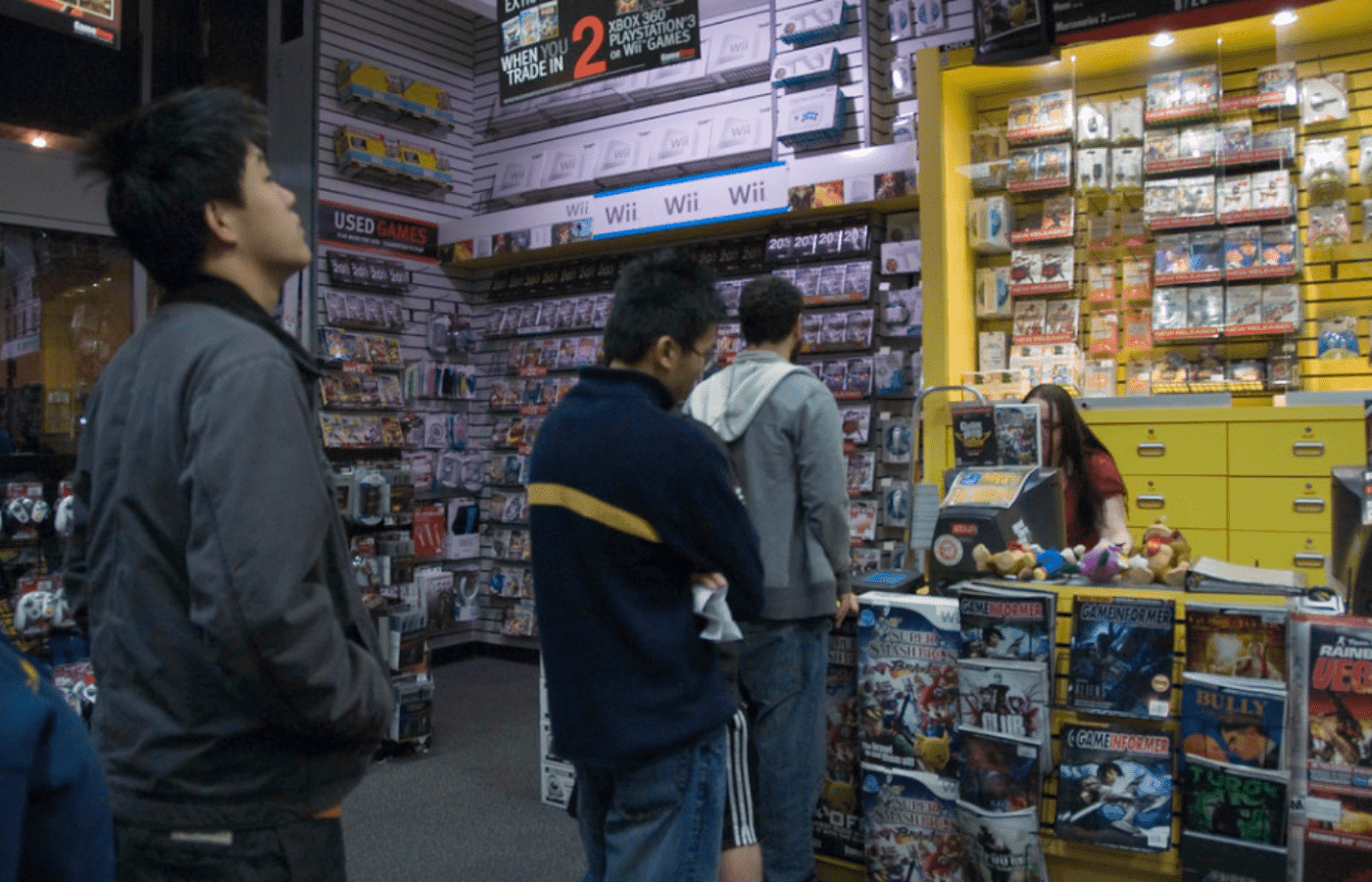Can You Use $100 Bills At Family Dollar? A Comprehensive Guide
Family Dollar is known for providing affordable products, but many shoppers wonder if the store accepts $100 bills for transactions. The short answer is yes, but there are nuances to consider. As a responsible shopper, it's essential to understand the policies of the store and the reasons behind any restrictions. This article will delve into the details of whether Family Dollar takes $100 bills and provide insights into their cash-handling practices. Whether you're planning a big purchase or simply curious about store policies, this guide has everything you need to know.
While most stores accept various denominations of cash, Family Dollar operates in a slightly different environment. With a focus on small-ticket items, the store often deals with smaller denominations, which can lead to confusion about larger bills like $100. However, understanding the store's policies and practices can help ensure a smoother shopping experience. This article will explore the specifics of cash transactions at Family Dollar, offering clarity for shoppers.
As we dive deeper into this topic, it's important to consider the broader implications of cash transactions in retail environments. Many stores have policies that limit the acceptance of large bills, citing security concerns and cash management challenges. By examining Family Dollar's approach, we can gain a better understanding of how these policies affect everyday shoppers. Read on to learn more about whether Family Dollar takes $100 bills and how you can prepare for your next visit.
Read also:Lisa Ann Cooper A Comprehensive Guide To Her Life Achievements And Influence
Does Family Dollar Take $100 Bills?
One of the most common questions shoppers have is whether Family Dollar accepts $100 bills. The answer is generally yes, but there are caveats. Family Dollar does not have a universal policy that bans $100 bills, but individual stores may have discretion based on factors like cash register capacity and security protocols. While the chain aims to accommodate all forms of payment, the acceptance of large bills may vary depending on the location and the manager's discretion.
It's worth noting that Family Dollar's cash-handling policies are designed to ensure smooth operations and minimize risks. Large bills can complicate cash transactions, particularly in stores with limited register capacity. Additionally, some locations may face higher risks of counterfeit bills, prompting stricter policies. However, these factors do not mean that $100 bills are entirely off-limits. Instead, shoppers should be prepared for potential variations in how stores handle large denominations.
Why Does Family Dollar Have Restrictions on Large Bills?
Many shoppers wonder why Family Dollar might impose restrictions on $100 bills. The primary reason lies in operational efficiency. Family Dollar's business model revolves around selling low-cost items, which means that most transactions involve smaller denominations. When a customer uses a $100 bill, it can create challenges for cashiers, who may need to break the bill into smaller change. This process can slow down the checkout process, leading to longer lines and reduced customer satisfaction.
Beyond operational concerns, security is another factor. Large bills are often targeted by counterfeiters, and stores must exercise caution when accepting them. Family Dollar may require cashiers to inspect $100 bills closely, adding another layer of complexity to transactions. Furthermore, some locations may not have sufficient cash reserves to make change for large bills, particularly during busy periods. These practical considerations help explain why Family Dollar might have varying policies regarding $100 bills.
What Should You Do if Family Dollar Doesn't Take $100 Bills?
If you encounter a Family Dollar store that does not accept $100 bills, there are several options to consider. First, you can visit a nearby bank or ATM to exchange the bill for smaller denominations. Most banks will gladly assist with this process, ensuring that you have the appropriate cash for your purchases. Alternatively, you can use alternative payment methods, such as debit or credit cards, which are widely accepted at Family Dollar.
Another option is to plan ahead by contacting the store beforehand. Many Family Dollar locations have store-specific policies, and reaching out to the manager can help clarify their stance on $100 bills. Additionally, you can check the store's website or social media pages for updates on cash-handling practices. By taking these proactive steps, you can avoid potential issues at the checkout counter and ensure a seamless shopping experience.
Read also:Destiny 2 Server A Comprehensive Guide To Understanding Its Impact On Gameplay
Does Family Dollar Take 100 Dollar Bills in All Locations?
While Family Dollar's official policy allows for the acceptance of $100 bills, the reality is that not all locations may adhere to this guideline. Individual stores may impose restrictions based on local conditions, such as high counterfeit rates or limited cash reserves. For example, rural locations with lower foot traffic might be less equipped to handle large bills compared to urban stores with higher cash flow. Shoppers should be aware of these variations and adjust their payment strategies accordingly.
How Can You Confirm if Your Local Family Dollar Takes $100 Bills?
The best way to confirm whether your local Family Dollar takes $100 bills is to contact the store directly. Most locations have a phone number listed on their website or signage, allowing you to speak with a manager or cashier. When calling, be sure to ask specific questions about their cash-handling policies and any restrictions on large bills. Additionally, you can visit the store in person and inquire at the checkout counter for clarification.
Another option is to check online reviews or forums where other shoppers share their experiences. Platforms like Yelp or Google Reviews often provide insights into store-specific policies, including whether $100 bills are accepted. By leveraging these resources, you can gain valuable information about your local Family Dollar's approach to cash transactions.
What Are the Alternatives if Family Dollar Doesn't Take $100 Bills?
If your local Family Dollar does not accept $100 bills, there are several alternatives to consider. One option is to use a debit or credit card, which is widely accepted at all Family Dollar locations. This method eliminates the need for cash entirely and ensures a smooth transaction process. Additionally, you can use mobile payment apps like Apple Pay or Google Pay, which are increasingly supported by major retailers.
Another alternative is to visit a nearby bank or ATM to exchange your $100 bill for smaller denominations. Most banks will provide this service free of charge, allowing you to prepare for your shopping trip. Alternatively, you can visit another store in the area that may have more lenient policies regarding large bills. By exploring these options, you can ensure that your shopping experience remains hassle-free.
Why Is Understanding Cash Policies Important?
Understanding the cash policies of retailers like Family Dollar is crucial for several reasons. First, it helps shoppers avoid potential issues at the checkout counter, ensuring a smoother and more enjoyable shopping experience. Second, it allows consumers to make informed decisions about their payment methods, reducing the likelihood of unexpected complications. Finally, understanding these policies can foster better relationships with store staff, as customers who are well-prepared are less likely to cause delays or disputes.
Does Family Dollar Take 100 Dollar Bills During Peak Hours?
During peak shopping hours, Family Dollar may face additional challenges when handling $100 bills. High customer volumes can strain cash registers, making it more difficult for cashiers to manage large denominations. In some cases, stores may temporarily restrict the acceptance of $100 bills to maintain operational efficiency. Shoppers should be mindful of these potential limitations and plan accordingly, particularly during busy periods like weekends or holiday seasons.
What Are the Security Concerns Surrounding $100 Bills?
One of the primary reasons retailers like Family Dollar may hesitate to accept $100 bills is the risk of counterfeit currency. Counterfeiters often target large denominations due to their higher value, making it essential for stores to exercise caution. Family Dollar cashiers may need to inspect $100 bills closely, using tools like ultraviolet lights or watermarks to verify authenticity. This process can add time to transactions and may lead to restrictions in certain locations.
Final Thoughts: Does Family Dollar Take 100 Dollar Bills?
In conclusion, Family Dollar generally accepts $100 bills, but individual stores may have varying policies based on operational and security considerations. By understanding these factors and preparing accordingly, shoppers can ensure a seamless shopping experience. Whether you choose to exchange your $100 bill for smaller denominations or opt for alternative payment methods, there are plenty of options to accommodate your needs. Remember to confirm your local store's policies beforehand and remain flexible in your approach.
Key Takeaways
- Family Dollar's official policy allows for the acceptance of $100 bills, but individual stores may impose restrictions.
- Operational efficiency and security concerns are the primary reasons for potential limitations on large bills.
- Shoppers should contact their local store or check online resources to confirm cash-handling policies.
- Alternative payment methods, such as debit or credit cards, can provide a convenient solution if $100 bills are not accepted.
Table of Contents
- Does Family Dollar Take $100 Bills?
- Why Does Family Dollar Have Restrictions on Large Bills?
- What Should You Do if Family Dollar Doesn't Take $100 Bills?
- Does Family Dollar Take 100 Dollar Bills in All Locations?
- How Can You Confirm if Your Local Family Dollar Takes $100 Bills?
- What Are the Alternatives if Family Dollar Doesn't Take $100 Bills?
- Why Is Understanding Cash Policies Important?
- Does Family Dollar Take 100 Dollar Bills During Peak Hours?
- What Are the Security Concerns Surrounding $100 Bills?
- Final Thoughts: Does Family Dollar Take 100 Dollar Bills?
Article Recommendations

